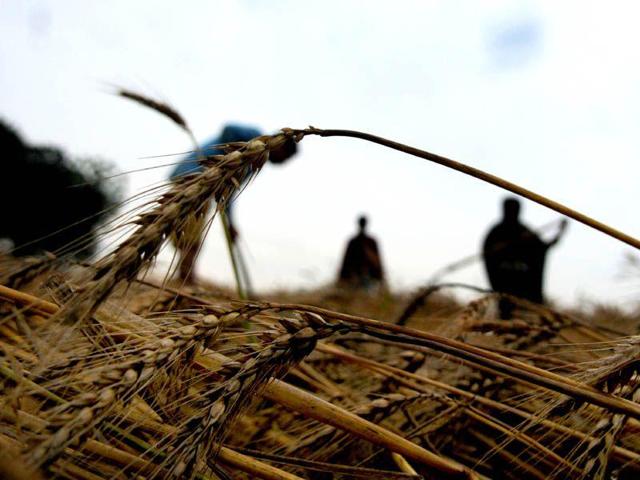Farmers burn crop residue in MP, practice causes soil erosion
MP state agriculture department officials say the government conducts regular training camps for farmers where they are told not to burn the crop residue.
The National Green Tribunal’s directive to five north Indian states to take coercive and punitive action against persistent defaulters of crop residue burning has once again thrown the fault lines open in Madhya Pradesh.

The order issued by the green body on Thursday does not apply to MP, but opens up a debate on the popular practice in the state, especially with experts pressing for a similar curb here.
“Farmers here burn crop residue in their haste to clear fields to sow the next crop. This method is more economical and time-saving, notwithstanding its extreme side effects on soil productivity,” agriculture expert Deepak Suchde told HT.
“This practice also leads to soil erosion and loss in crop yield. In fact, farmers should use the crop residue as biomass to improve soil fertility and instead of tilling land, use proper sowing technique,” he said.
State agriculture department officials said the state government conducts regular training camps for farmers where they are told not to burn the crop residue among other things, but most farmers don’t follow the advice.
“Most farmers today don’t like to put in extra effort that goes into removing the residue in a proper manner. Burning crop residues destroys the microbial life and has an adverse effect on yield. In fact, farmers could mix the residue with soil to increase its productivity while preparing the field for the next crop. However, most farmers don’t follow this advice,” deputy director (agriculture) SC Agrawal told HT.
The burning of crop residue, besides harming the soil and impacting crop yield, also causes air pollution. However, some farmers say they are not aware about the ill-effects. “This practice was followed by my father and so I also do it. There is no harm provided one tills the land in a proper manner before sowing. I don’t attend agriculture camps of the state government so have no idea about the same,” Dinesh Mukati, a farmer in Dhar told HT.
Punitive action
The NGT has directed five state governments, including Rajasthan, Haryana, Punjab, Delhi and Uttar Pradesh, to take coercive and punitive action against persistent defaulters of crop residue burning and asked them to withdraw the assistance provided to those farmers.
The tribunal said small land owners having less than two acres of land will have to pay Rs. 2500, medium land owners holding over two acres and less than five acres will have to pay Rs. 5,000 and those owning over five acres will have to pay Rs. 15,000 per incident of crop burning towards environment compensation.
Stay updated MP Election Result and with all the Breaking News and Latest News from Bengaluru. Click here for comprehensive coverage of top cities including Delhi, Mumbai, Hyderabad, and more across India . Stay informed on the latest happenings in World News.
Stay updated MP Election Result and with all the Breaking News and Latest News from Bengaluru. Click here for comprehensive coverage of top cities including Delhi, Mumbai, Hyderabad, and more across India . Stay informed on the latest happenings in World News.





